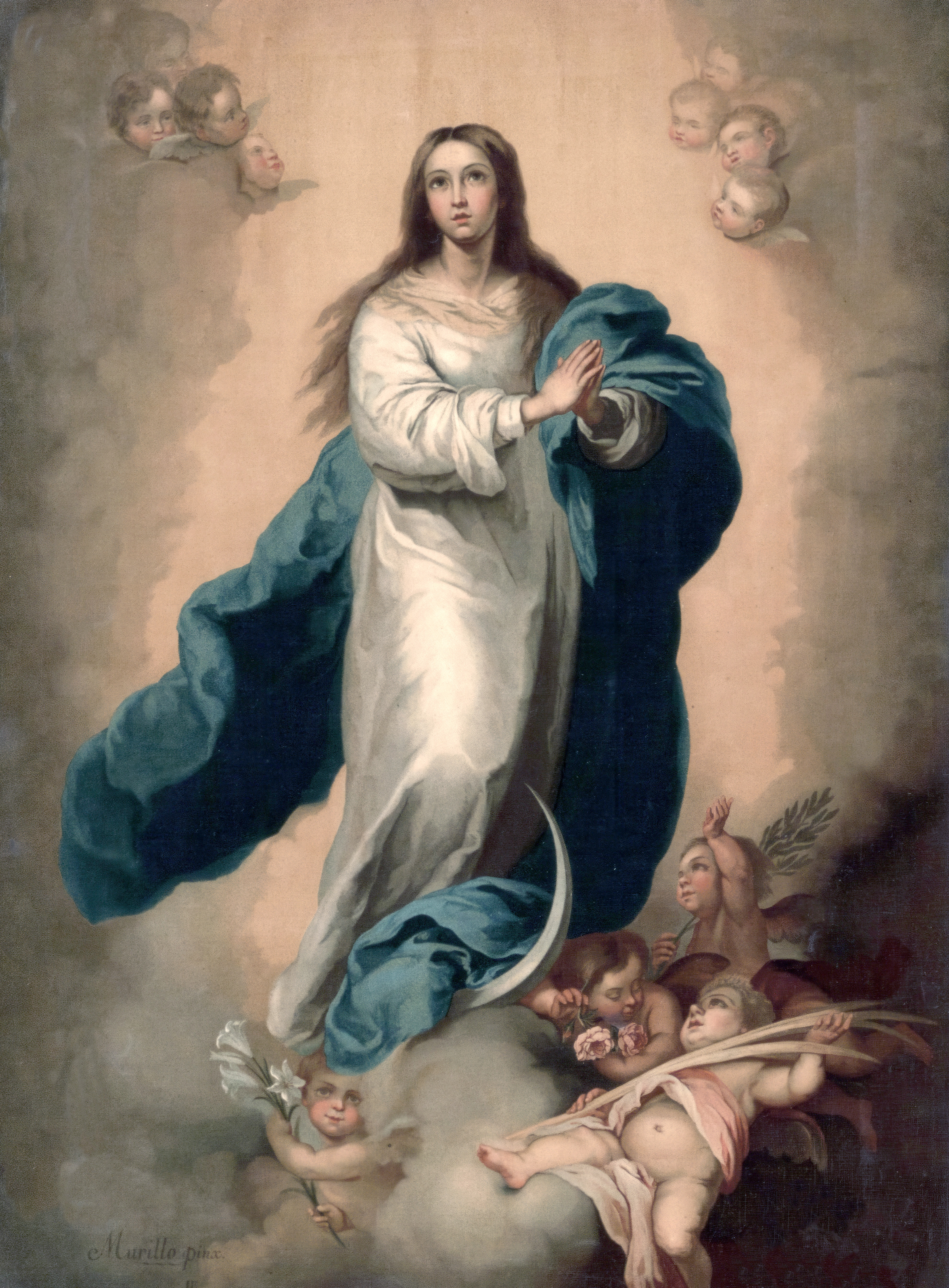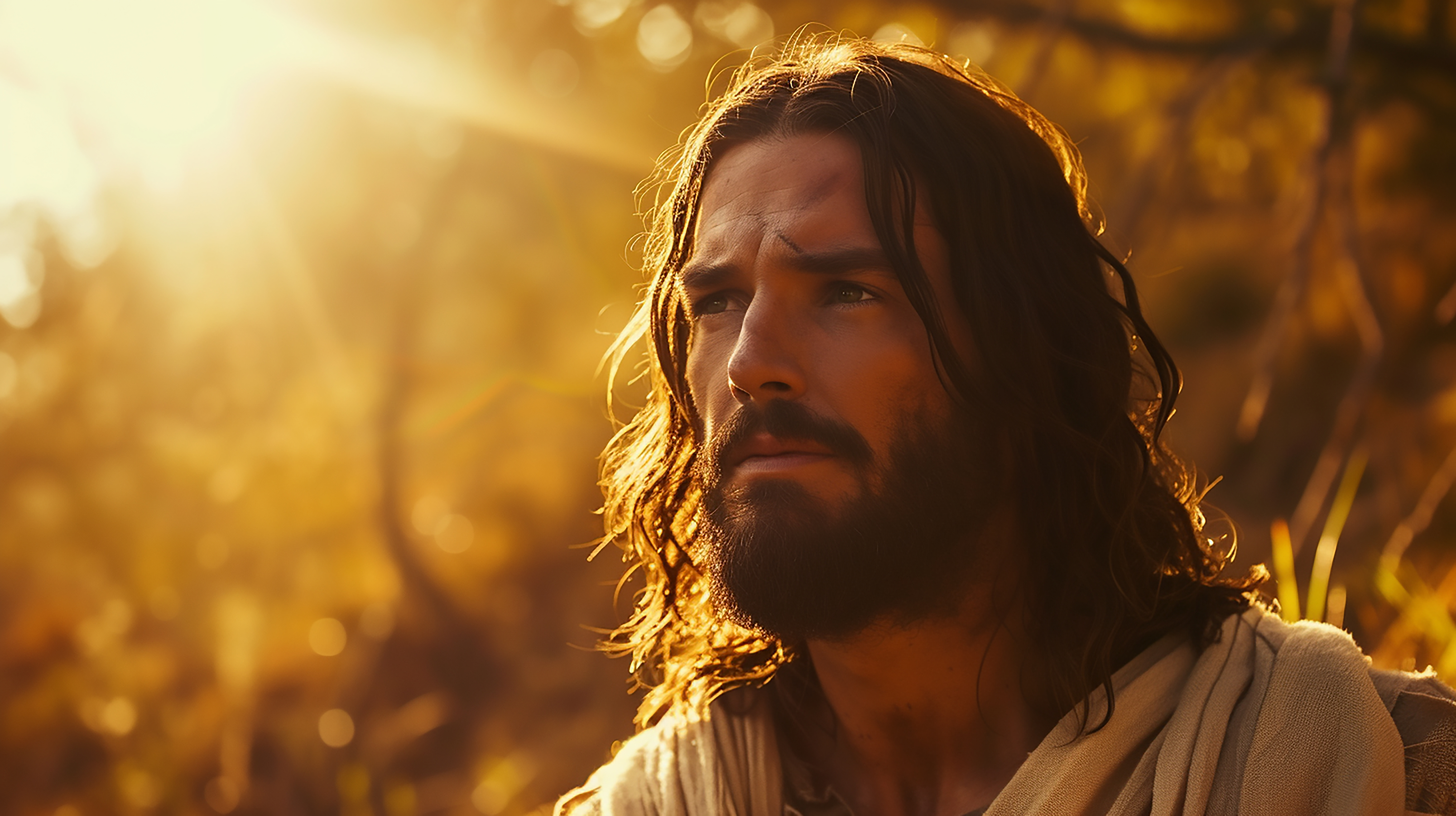Let us pause for a minute and reflect on how the Blessed Virgin Mary was given the grace of being Immaculate not because she said yes to Christ at the Annunciation but rather because of her Immaculate Conception in the womb of her mother, St. Anne. The Lord prepared her for the critical and vital role she plays in Salvation History by protecting her from original sin.
Today we recall the great Solemnity of the Immaculate Conception of the Blessed Virgin Mary. On this feast day, we recognize that from Mary’s conception, she was protected from original sin. Blessed Pope Pius IX proclaimed the dogma of the Immaculate Conception of Mary on December 8, 1854. In this declaration, he stated, “The most Blessed Virgin Mary was, from the first moment of her conception, by a singular grace and privilege of Almighty God and by virtue of the merits of Jesus Christ, Saviour of the human race, preserved immune from all stain of original sin.”
In today’s Gospel reading, we read how the Angel Gabriel says to Mary, “Rejoice, oh highly favored! The Lord is with you.” These words must have invoked such a deep and profound wonder. But the Angel continued with, “Mary, do not be afraid you have won God’s favor.” By responding “I am the handmaid of the Lord; let what you have said be done to me”, Mary activated her role in Salvation History through the powerful example of complete and free cooperation with God. How can we say, “Yes” to the Lord in our own lives?
The Lord offers us what we need to endure both the joyful and sorrowful aspects of our life; our life is meant to be lived in the state of grace and with grace to guide us and lead us. Without grace, we miss beautiful encounters, moments, and heavenly gifts that we need to be united with God forever in heaven.
May we also invite Mary, the Mother of God, to lead us closer to Christ and live out God’s will through her intercession and prayers. Today let us not only unite our hearts by attending Holy Mass in honor of our Lady but also give God our hearts so that we can follow the path of Mary and say yes to Christ.
Hagamos una pausa por un minuto y reflexionemos sobre cómo se le dio a la Virgen María la gracia de ser inmaculada no porque le dijo que sí a Cristo en la Anunciación, sino por su inmaculada concepción en el útero de su madre, Sta. Ana. El Señor la preparó para el papel crítico y vital que desempeña en la historia de la salvación al protegerla del pecado original.
Hoy recordamos la gran solemnidad de la inmaculada concepción de la Santísima Virgen María. En este día de fiesta, reconocemos que desde la concepción de María, estaba protegida del pecado original. El Bendito Papa Pío IX proclamó el dogma de la Inmaculada Concepción de María el 8 de diciembre de 1854. En esta Declaración, dijo: “La Santísima Virgen María fue, desde el primer momento de su concepción, por una gracia singular y un privilegio de Dios todopoderoso y en virtud de los méritos de Jesucristo, Salvador de la raza humana, preservada inmune de todas las manchas del pecado original”.
En la lectura del evangelio de hoy, leemos cómo el ángel Gabriel le dice a María: “Alégrate, llena de gracia, el Señor está contigo”. Estas palabras deben haber invocado una maravilla tan profunda y profunda. Pero el ángel continuó con: “No temas, María, porque has hallado gracia ante Dios.” Al responder “Yo soy la esclava del Señor; cúmplase en mí lo que me has dicho”, Mary activó su papel en la historia de la salvación a través del poderoso ejemplo de cooperación completa y libre con Dios. ¿Cómo podemos nosotros decir “sí” al Señor en nuestras propias vidas?
El Señor nos ofrece lo que necesitamos para soportar los aspectos alegres y tristes de nuestra vida; Nuestra vida está destinada a ser vivida en el estado de la gracia y con gracia para guiarnos. Sin gracia, nos hacen falta los hermosos encuentros, momentos y dones celestiales que necesitamos para estar unidos con Dios para siempre en el cielo.
Que también invitemos a María, la Madre de Dios, a llevarnos más cerca de Cristo y vivir la voluntad de Dios a través de su intercesión y oraciones. Hoy no solo unamos nuestros corazones asistiendo a la Santa Misa en honor de Nuestra Señora, sino que también le damos a Dios nuestros corazones para que podamos seguir el camino de María y decir que sí a Cristo.
 Emily Jaminet is a Catholic author, speaker, radio personality, wife, and mother of seven children. She earned a bachelor’s degree in mental health and human services from the Franciscan University of Steubenville. She is the co-founder of www.inspirethefaith.com and the Executive Director of The Sacred Heart Enthronement Network www.WelcomeHisHeart.com. She has co-authored several Catholic books and her latest one, Secrets of the Sacred Heart: Claiming Jesus’ Twelve Promises in Your Life, came out in Oct. 2020. Emily serves on the board of the Columbus Catholic Women’s Conference, contributes to Relevant Radio and Catholic Mom.com.
Emily Jaminet is a Catholic author, speaker, radio personality, wife, and mother of seven children. She earned a bachelor’s degree in mental health and human services from the Franciscan University of Steubenville. She is the co-founder of www.inspirethefaith.com and the Executive Director of The Sacred Heart Enthronement Network www.WelcomeHisHeart.com. She has co-authored several Catholic books and her latest one, Secrets of the Sacred Heart: Claiming Jesus’ Twelve Promises in Your Life, came out in Oct. 2020. Emily serves on the board of the Columbus Catholic Women’s Conference, contributes to Relevant Radio and Catholic Mom.com.
Feature Image Credit: Bartolomé Esteban Murillo, art.diocesan.com/stock-photo/the-immaculate-conception-21556/
The views and opinions expressed in the Inspiration Daily blog are solely those of the original authors and contributors. These views and opinions do not necessarily represent those of Diocesan, the Diocesan staff, or other contributors to this blog.












